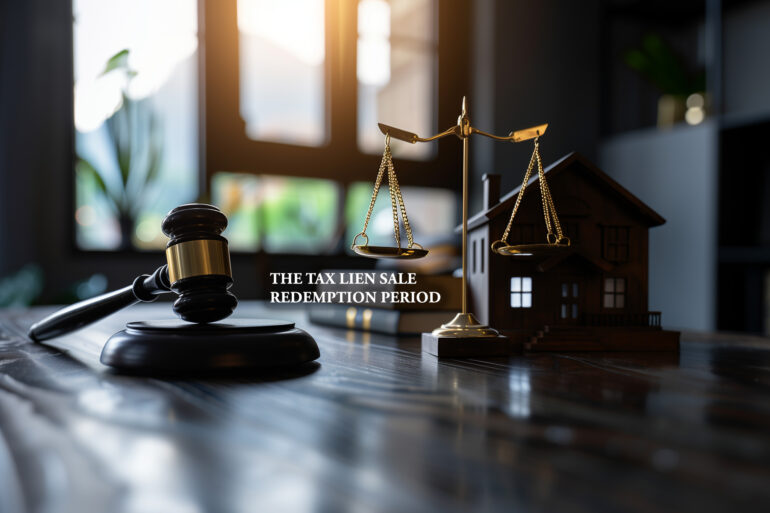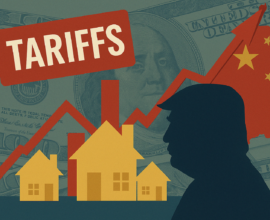What You Need to Know About the Tax Lien Redemption Period
Tax lien investing allows investors to make money off the inability of an owner to pay their property taxes. First, they must win either an in-person or online tax lien auction. The investor then pays off the tax bill, along with interest and penalties. The tax lien redemption period, which varies by state, is the amount of time the property owner has to pay off the debt to avoid losing their home.
Keep in mind that property owners receive notice of any tax lien sales or foreclosures well in advance of the actual sale. During this tax lien redemption period, they have the opportunity to pay off the delinquent amount, along with fees and interest. If they are not able to pay this amount during this timeframe, the investor can start the foreclosure process and become the owner of the property.
Paying the amount of the tax certificate is not the only expense a property owner faces when redeeming a tax lien.
What is a Tax Lien?
Not paying property taxes subjects the property owner to a tax lien on their home. This lien serves as a legal claim for the unpaid amount. While regulations involving tax liens vary by state, the process almost always involves allowing the local government to sell the property to collect delinquent taxes.
The entities that may file a tax lien include:
- The Internal Revenue Service
- The federal government
- State governments
- Local municipalities
However, entities such as the IRS may file a tax levy rather than a tax lien against a property owner. A levy is the actual taking of the property to satisfy a tax debt, whereas a lien simply secures government interest in the property.
Any other lien on a property can keep the tax certificate investor from taking possession.
Florida Tax Liens
In Florida, the maximum rate of interest on a tax certificate is 18 percent per year, with interest calculated from the first day of each month. However, tax certificates may not bear interest, and the mandatory interest provided by law may not be levied during the 60 days following the date of delinquency. There is an exception during this timeframe for 3 percent mandatory interest.
Tax Deed Sale
At a Florida tax deed sale, the property is sold to the highest bidder at a public auction. Once the county’s clerk of the circuit court receives full payment for the tax deed, the property cannot be redeemed by the former owner.
The delinquent taxpayer has one year in which to pay off the lien and interest.
Tax Lien Redemption Period in Florida
Under Florida statute § 197.502, a delinquent taxpayer has two years after a tax lien sale to redeem the property before a tax deed sale takes place. The purchaser of the tax lien must wait two years from April 1 of the tax certificate issuance year before they can submit a tax deed application to the tax collector.
If the purchaser fails to submit a tax deed application within seven years of the tax certificate issuance, the certificate expires. However, if there are other legal proceedings on record, the certificate may not expire after this seven-year period.
Florida Redemption Payment Amounts
Paying the amount of the tax certificate is not the only expense a property owner faces when redeeming a tax lien. Factor in interest and administrative costs as well. How much the lien purchaser bid on the debt also plays a role in the redemption payment amount.
For instance, if the lien purchaser bids less than 5 percent interest on the debt, the property owner may face mandatory minimum charges. As per Florida statute § 197.472, “The person redeeming the tax certificate shall pay the interest rate due on the certificate or the 5 percent mandatory minimum interest, whichever is greater.”
While this applies to all county-held tax certificates and all individual tax certificates, there is an exception for those with an interest rate bid of zero percent. If that is the case, the owners do not owe mandatory minimum interest.
The winning bidder receives the deed to the house once the court confirms the sale.
Tax Lien Redemption Period in Ohio
In Ohio, the purchaser of the tax lien has one year in which to begin foreclosure proceedings. That means the delinquent taxpayer has one year in which to pay off the lien and interest.
A tax lien investor holding the certificate can start the foreclosure process after this one-year period by having their attorney prepare a Notice of Intent to Foreclose. This notice requires approval by the county treasurer. Within 120 days of filing the notice, the investor’s attorney must file for foreclosure.
As per Ohio Rev. Code § 5721.38, the homeowner may still redeem the property after the lien purchaser starts the foreclosure by paying the tax certificate price plus 18 percent interest per year, along with lawyer’s fees and costs and other applicable fees.
Ohio Foreclosure Action
In Ohio, the country treasurer may opt to start a foreclosure action against the delinquent taxpayer rather than sell a tax lien. The court will order a property auction for tax debt satisfaction. The winning bidder receives the deed to the house once the court confirms the sale.
Under Ohio law, it is also possible for the county treasurer to negotiate a sale of the home privately.
The Bottom Line
Tax lien investing can prove quite lucrative. However, the majority of tax lien investors are not going to possess the property. The overwhelming majority of property owners do redeem their properties during the tax lien redemption period prior to foreclosure.








